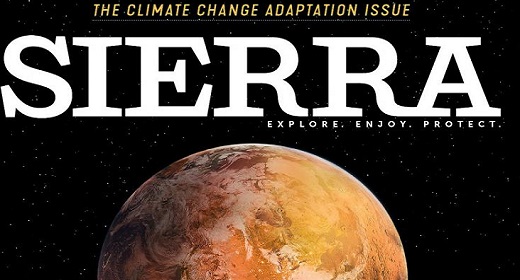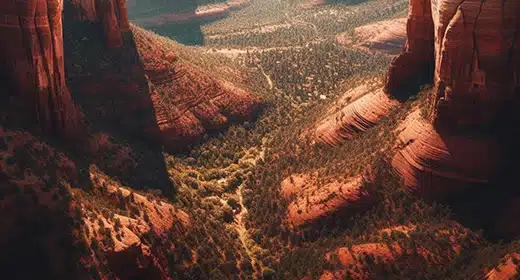by Jason Mark: “The test of a first-rate intelligence is the ability to hold two opposed ideas in the mind at the same time and still retain the ability to function,” F. Scott Fitzgerald once wrote…
“One should, for example, be able to see that things are hopeless and yet be determined to make them otherwise.”
That observation—perhaps better to call it an aspiration—has been on my mind since last fall, when the Intergovernmental Panel on Climate Change released its latest report on the state of Earth. The IPCC warned that civilization has as few as 12 years to rein in greenhouse gas emissions or risk global temperatures rising past 1.5°C—a threshold beyond which we will witness the collapse of Arctic ecosystems, the loss of most of the world’s coral reefs, and a reduction in food harvests. Already, the world’s top climate scientists report, rising temperatures are contributing to intensified storms, droughts, and fires. Climate change is no longer a looming threat; it is now a clear and present danger.
In the (at least) 30 years since scientists began warning about climate change, the environmental movement, global civil society, and some (though not enough) political leaders have been focused on addressing the root of the problem: greenhouse gas emissions. But those efforts have been inadequate, and temperatures continue to rise. The terrible fate we sought to avoid is upon us: Even if humans stopped all emissions today, Earth would keep warming for generations. Which means that even as we stay focused on transitioning away from fossil fuels, halting deforestation, and reforming our agriculture systems, we must also begin preparing for life on a planet transformed.
This dual task—managing the unavoidable while working to avoid the unmanageable—poses a huge challenge to the environmental movement. It’s not an overstatement to say that it may represent the greatest challenge in human history. As the IPCC report put it, the scale and scope of the changes we need to make have “no documented historic precedent.”
That’s why Sierra is publishing this special issue on climate change adaptation. As our reporting reveals, adaptations will have to take a number of forms. In “On the Move“, Madeline Ostrander reports that we will likely have to begin some kinds of assisted migration—helping flora and fauna relocate in order to survive. Rising sea levels will also spur the migration of human communities, Kenneth Brower writes in “The Atolls of Arkansas,” forcing some people to make new homes in strange lands. Miami will have to respond to rising sea levels (“Sea Change“), while Phoenix will have to cope with deadly temperatures (“Summer Is Coming“).
Above all, we will have to (finally, belatedly) accept the idea of living in a world of physical limits while simultaneously embracing a new age of boundless human ingenuity. In his essay “There Is No Planet B,” celebrated science fiction writer Kim Stanley Robinson argues that this will require us to rethink some of our assumptions about how the economy works, and whom it works for. “Our challenge,” he writes, “is to imagine harder.”
After the work of imagining comes the more demanding work of realizing our vision. Action, especially collective action, is the most effective antidote to despair.
Which brings us back to Fitzgerald. His line about hopelessness comes from an essay for Esquiretitled “The Crack-Up.” It’s a privileged person’s account of grappling with anxiety and depression—a predicament not unlike what now confronts our species as a whole. Humans occupy a position of power unprecedented in the life of the planet, yet we know that the status quo is untenable. While intelligence may be indispensable to navigating this era, it’s also insufficient. Yes, we’ll need all the smarts we can muster. But we’ll need heart too. That is to say, courage.





















































